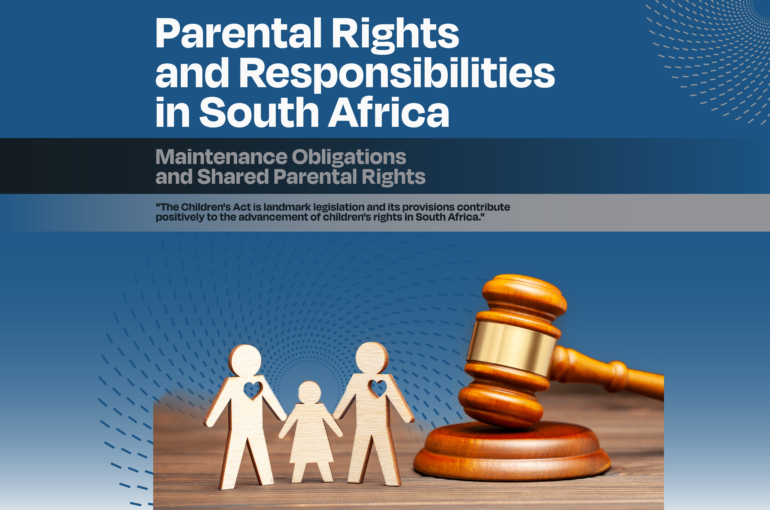Parental Rights and Responsibilities in South Africa
Article by: Kaden Creighton
The Children’s Act 38 of 2005 is legislation designed to provide the legal framework for all matters involving children in South Africa. Chief among the sentiments of the Act, is the notion that the child’s interests are to be considered of paramount importance in all matters concerning the child.
The Act also provides clarity on parental rights and responsibilities in respect of the child, and indicates the differences in the legal position of married and unmarried fathers in this regard.
Mothers gain automatic parental rights and responsibilities in respect of their child, irrespective of all other factors. A father’s position is slightly different. Section 20 of the Act states that a father will acquire the same rights and responsibilities as the mother if the father was or is:
- Married to the child’s mother at the time the child was conceived;
- Married to the child’s mother at the time that the child was born; or
- Married to the child’s mother at any time between conception and birth.
In terms of Section 21, unmarried fathers acquire full parental rights and responsibilities in respect of the child if they were either living in a permanent life partnership with the child’s mother at the time of the child’s birth, or if they consent and successfully apply for such rights as well as contribute to the child’s upbringing and maintenance for a reasonable period of time. Therefore, in terms of the Act, fathers who are unmarried do not gain automatic parental rights. These rights only accrue to the father if the abovementioned conditions are fulfilled.
It is important to note that the responsibility to maintain a child extends equally to both married and unmarried fathers. This duty to maintain one’s child is present even where no parental rights are accrued in respect of an unmarried father.
In terms of Section 30 of the Act, more than one person may hold and exercise parental rights over the child without the consent of the other holder. This means that both mothers and fathers, who are holders of parental rights, may exercise these rights independently from one another, unless a court has directed otherwise.
The Children’s Act is landmark legislation and its provisions contribute positively to the advancement of children’s rights in South Africa.


